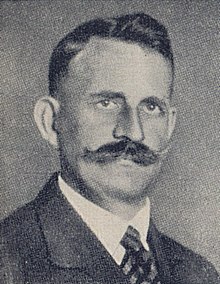- ↑ Map link to Hans-Vogel-Straße, 90765 Fürth, Germany Google Maps. Retrieved July 20, 2010
Hans Vogel | |
|---|---|
 Vogel in the 1920s | |
| Chairman of the Social Democratic Party of Germany | |
| In office 1931–1945 |
Hans Vogel | |
|---|---|
 Vogel in the 1920s | |
| Chairman of the Social Democratic Party of Germany | |
| In office 1931–1945 |